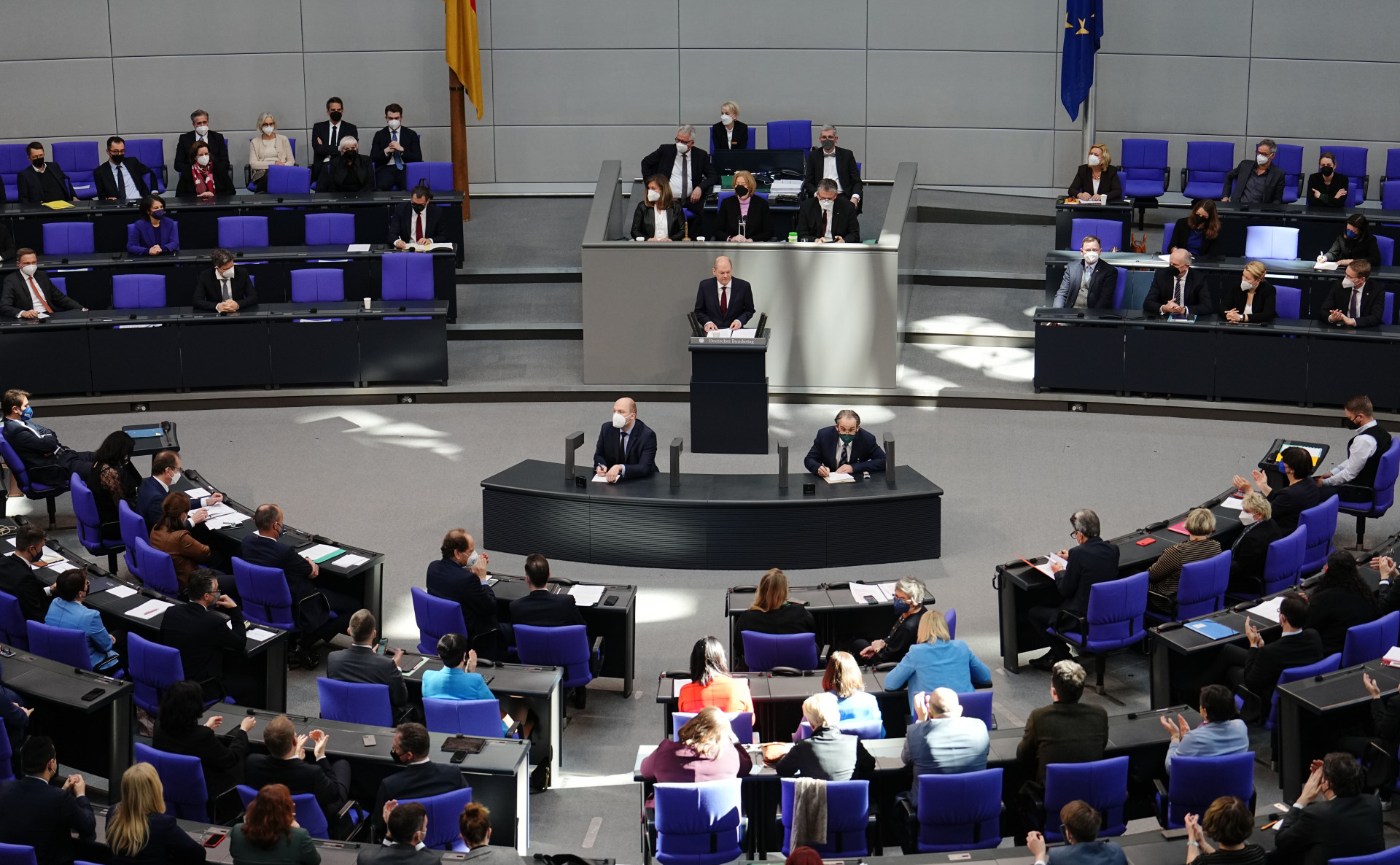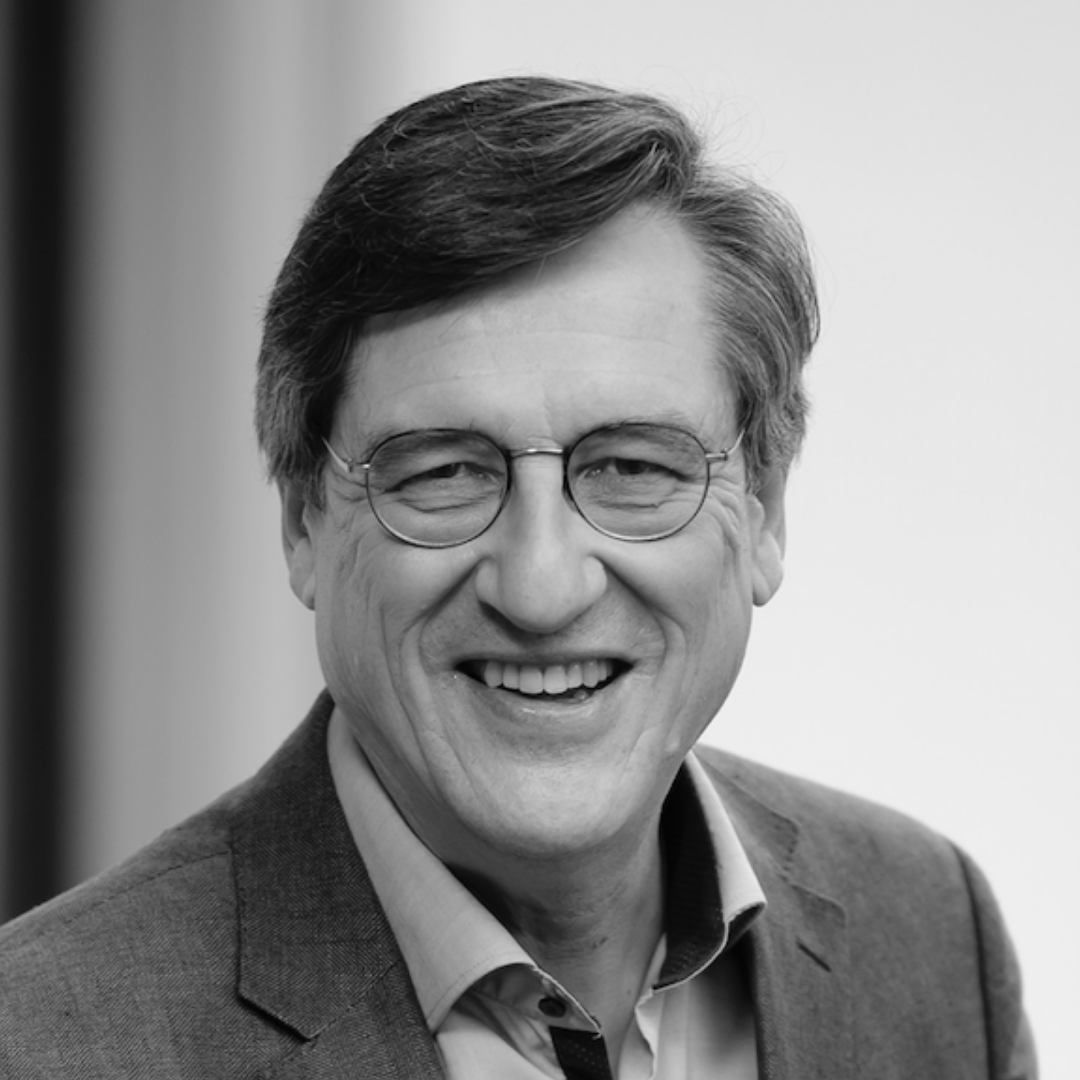WAR IN EUROPE
A course correction for Germany
We need more investment in defence and a sensible energy transition. We also need a growth-oriented economic policy to finance it.
TEXT: KARL-HEINZ PAQUÉ

WAR IN EUROPE
A course correction for Germany
We need more investment in defence and a sensible energy transition. We also need a growth-oriented economic policy to finance it.
TEXT: KARL-HEINZ PAQUÉ
The Russian invasion of Ukraine has changed a lot of things. More than two generations of Germans grew up under the impression that a war of aggression couldn’t really happen any more in Europe. Granted, the conflict resulting from the break-up of Yugoslavia and the Srebrenica massacre showed that merging societies in an artificial state for decades had created a tinderbox ready to explode. However, that could be discounted as the remains of the bankrupt communist experiment – dreadful events, but unique and transitory.
The same cannot be said of Russia’s invasion of Ukraine. It has clearly shown that 19th century imperial values still apply in Putin’s Russia. Putin thinks – in the words of Charlemagne Prize winner Timothy Garton Ash – in terms of the world of Yalta in 1945, where the major powers have zones of influence, and not in terms of the Helsinki Final Act of 1975, which made a binding principle of the right of self-determination for the peoples of Europe.
Strong defence
German parliament drew its conclusions accordingly in a special session on 27 February. It was a memorable debate, as the four groups of the extended political centre – from left to right: SPD, Greens and FDP in the so-called “traffic light” coalition plus CDU/CSU in opposition – committed to a drastic increase in defence spending. The message: the time of the peace dividend has passed and is not coming back. Germany needs a strong defence.
In fact, over the past two decades, the country has not invested two percent of gross domestic product (GDP) in defence, as requested by NATO, preferring somewhere between 1.1 and 1.5 percent instead. This has led to a major backlog in the modernisation of the armed forces. A rough macroeconomic calculation demonstrates that one percentage point of GDP amounts to about EUR 38 billion today. At current prices, that easily comes to an aggregate value of EUR 400 billion of foregone defence expenditure over two decades, a gigantic sum. Furthermore, bearing in mind that the technical equipment of the army, air force and navy has a much longer service life than machinery used in the private sector, the claim about the shortages in the German forces is entirely credible.
The planned special fund of EUR 100 billion – earmarked exclusively for defence – is thus rather modest, if the aim is to make up the shortfall within a manageable time.
Energy security
The planned special fund of EUR 100 billion – earmarked exclusively for defence – is thus rather modest, if the aim is to make up the shortfall within a manageable time. Also, the emphasis must be on professional equipment, not on bringing back compulsory military service. After all, there has been no talk about a lack of motivation or quality of troops that would suggest that such a step would be necessary. The Bundeswehr of today is a good all-volunteer force, is it just poorly equipped. Therein lies the sole bottleneck, which should be at the centre of any future action plan.
However, the peace dividend of the past two decades did not solely consist of reducing the share of defence spending in the Federal budget. It also touched on other areas, especially energy policy: the farewell to nuclear energy and coal-fired power generation came with carefree abandon as plans were made to advance this agenda step by step, stage by stage, with ever tighter deadlines. In the process, the share of renewable wind and solar energies increased drastically, which was of course absolutely appropriate from a climate policy point of view; but unfortunately, at the same time, the volume of Russian oil and gas also increased rapidly – up to a share of well over 50 percent of total gas supply in Germany. And much more was of course planned with the construction of Nord Stream 2.
That is over now. German energy policy is in shambles. Energy security in a technological and, more importantly, political sense has become a pipe dream. In its dealings with Putin, Germany has become hostage to its own energy dependence on Russia. This must change fundamentally. But how? The economic magic formula is diversification of energy sources – by type and national origin –spreading risks to avoid one-sided dependencies. However, this requires new pragmatism instead of old ideology.
On the one hand, this pragmatism naturally includes the attempt to push ahead with the expansion of renewable energies at a continued high speed in order to actually achieve a state that guarantees both climate neutrality and political independence. But on the way there, well thought out interim solutions are urgently needed that do not restrict the political and humanitarian capacity to act, as happened with Putin's gas. An extension of the lifespans of the three nuclear power plants still connected to the grid must be honestly and seriously considered. The same applies to the generation of electricity from domestic lignite and imported, non-Russian hard coal.
An extension of the lifespans of the three nuclear power plants still connected to the grid must be honestly and seriously considered.
Dynamic growth
Would this kind of pragmatism really damage Germany's credibility as a global role model for the use of renewable energies? On the contrary. It is likely that large parts of the world would welcome more realism and less ideology on the part of Germany. It would give the important, peace-loving middle power greater foreign policy leverage to pursue and achieve political and humanitarian goals together with other liberal democracies of the world. It is just like in defence policy: If you want to have a say on a global level you need a credible policy of national sovereignty. At least this is true for the part of the world committed to the global struggle for the enforcement of human rights.
There remains a dangerous economic problem that will accompany us in the twenties and thirties of this century: demographic shrinkage. The baby boomers will exit the labour market and be replaced by a much smaller generation, which will turn the labour shortage already evident today into a dramatic permanent situation. This is good for every single worker, whose wage or income will rise strongly in real terms. However, there is a great danger that the economy's capacity for innovation and performance will suffer. And it also places a huge question mark over the financial viability of the new defence and energy policy agenda: only if Germany can post dynamic economic growth will it be able to pay for it without excessive public debt and cuts in the welfare state that are politically hard to sell.
There remains a dangerous economic problem: demographic shrinkage.
Even before the war in Ukraine, the German government coalition set a suitable course in this respect in its coalition agreement of November 2021: they replaced an ideology of accepting lower growth with a firm commitment to economic growth as the basis for managing key social tasks. The instruments are manifold: intelligently controlled immigration of qualified foreign nationals by means of an immigration law, strengthening of the start-up culture bringing private and public research together, flexible retirement schemes to enable longer working lives and better educational opportunities through lifelong learning, no performance-inhibiting tax increases that hinder the commercial Mittelstand, accelerated expansion of the digital infrastructure and repair of the partly dilapidated traffic infrastructure of roads and railways, reduction of bureaucracy, i.e. simplification of licensing procedures, etc.
This “new growth policy” is all the more important as energy prices are skyrocketing and the German economy – for the first time since the 1970s – is coming under massive inflationary pressure. It is becoming increasingly apparent that this is not solely the result of the growth disruptions and public spending programmes of the two Covid-19 years and that it will not “subside” immediately afterwards. It is probably not just a one-off surge in price adjustment after all. Rather, permanent structural bottlenecks are appearing in the (non-inflationary) macroeconomic expansion, which are due to the fact that existing capacities are scarce and labour markets are tight in the industrialised countries of the world. It should be noted that the war in Ukraine has not created this situation, but it has certainly exacerbated it considerably, forcing politicians to act decisively in the realm of economic policy as well.

Karl-Heinz Paqué is Chairman of the Friedrich Naumann Foundation for Freedom and a professor of economics.

Karl-Heinz Paqué is Chairman of the Friedrich Naumann Foundation for Freedom and a professor of economics.
More Articles
Josef Joffe // Braving the cold for Kyiv?
All of a sudden, the West remembers Schiller’s observation: “The most pious man can’t stay in peace, if it does not, please his evil neighbour.” There is more than just Ukraine at stake; Europe’s 77-year-old reign of peace, the longest ever, is on the line.
Sabine Leutheusser-Schnarrenberger // Putin on trial!
The only way to deal with the brutal and unscrupulous actions of the Russian ruler is to make clear decisions – and to use the full force of national and international justice. That is why Gerhart Baum and Sabine Leutheusser-Schnarrenberger have filed charges against Putin.
Sven Hilgers // Financial weapons
The unprecedented package of sanctions imposed by the G7 in response to Russia’s attack shows how the financial system can be used in geopolitical conflicts. In the future, nations will be more careful to avoid asymmetrical dependencies.
